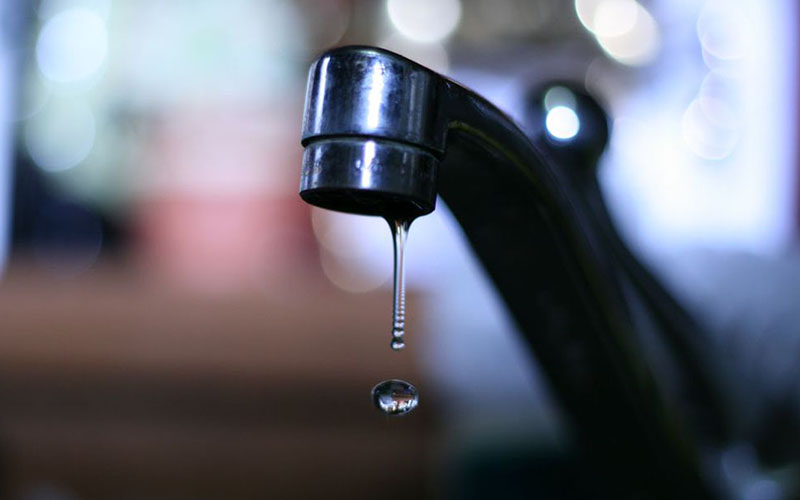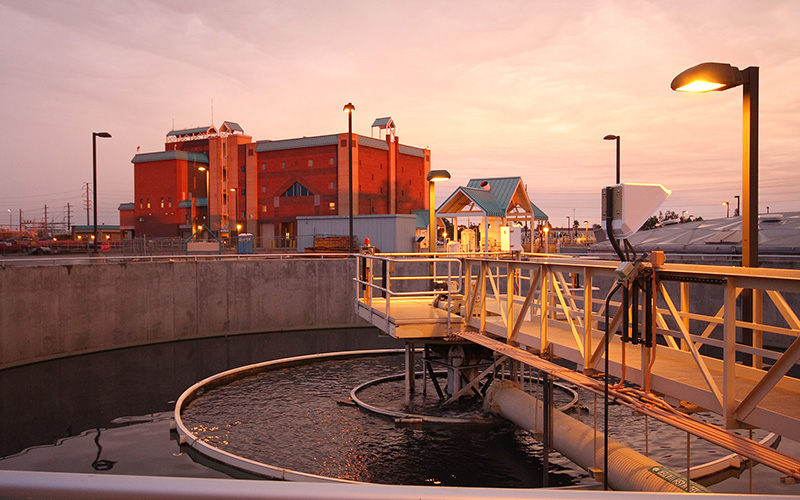
Phoenix has some of the lowest municipal water rates in the nation, despite a rate hike this month, a situation that one businessman called “almost ridiculous” for a desert city. Despite the low cost, water conservation is still strong in the city. (Photo by Bart/flickr via Creative Commons)

The Deer Valley Water Treatment Plant began delivering water to residents in 1964. City officials said the need to constantly upgrade facilities, in addition to the usual inflationary increases in costs of supplies and salaries, were part of the reason for a rate hike. (Photo courtesy City of Phoenix)
WASHINGTON – If you live in Phoenix, you’re probably paying one of the cheapest annual water bills in the country, even with the rate increase that took effect this month, according to a recent national report on public water systems.
The February report by Food & Water Watch said the lead-tainted water supply in Flint, Michigan, was the most expensive in the country, with customers there paying $910.05 a year. It said Phoenix residents paid just $84.24 a year, then the lowest rate in the nation.
A city water department official said the rates could be a little misleading – rates jump for heavy users, one factor that has helped Phoenix keep water use down even as the number of water users has risen sharply.
But even after the 3 percent increase that took effect March 1, analysts say Phoenix rates are probably still among the lowest, if not the lowest, in the country for residential customers who don’t use large amounts of water in a month.
See related story:
“For living in the desert, it’s almost ridiculous how low our bills are,” said Tom Burba, general manager of Poolcorp’s Mountain Division, a swimming pool company.
Food & Water Watch, a Washington, D.C.-based advocacy group, ranked the annual bills of 500 water providers across the country.
Stephanie Bracken, a spokeswoman for the Phoenix Water Services Department, said the report’s rankings are based on families using 5,000 gallons of water per month, which could skew the numbers in the city’s favor.
“Phoenix water rates appear low compared to other cities in the Food & Water Watch study because the amount of annual water consumption used in the study … mostly falls within Phoenix’s ‘lifeline’ block that is used to ensure access to clean, safe water for economically disadvantaged families,” Bracken said in an email.
For the smallest meter in Phoenix, residents were charged $4.36 per month, according to the city’s rate schedule, a flat rate that includes about 4,500 gallons from October through May and almost 7,500 gallons from June through September.
– Cronkite News video by Ziyi Zeng
Charges for users who exceed those caps varies by season, and there is an environmental charge on all water consumed.
For average users, the department said, the 3 percent rate increase that took effect March 1 added $1.59 per month to the bill. Another 2 percent increase is scheduled to take effect in 2017.
The pay structure was set up using low-cost flat monthly rates to make sure all families could afford water, especially in the summer, Bracken said, and to encourage conservation in the dry state.
“We use around the same amount of water as we did back in 1995 and serve around 400,000 more people with it,” Bracken’s email said. “Our customers understand the need for conservation in the desert and they use water wisely.”
That pay structure is designed to boost costs to heavier users.
“If, however, you enjoy a pool, large yard and lush landscaping, you’re going to pay dearly for it,” she said.
But outdoor businesspeople like Burba said even outdoor water use is still pretty affordable.
Burba said he doubts this month’s rate increase will dampen people’s interest in pools, since the water is still cheap.
Mike Long, the former president of the Central Arizona chapter of the Association of Pool & Spa Professionals, agreed.
“I don’t think that (3 percent increase) would make a difference,” he said, explaining that it would not add enough to a bill in the long run to decrease the number of people installing and maintaining pools.
Long said he is not surprised that Phoenix has relatively cheap water, especially since he has worked in pools in California. Water restrictions there are much more concerning than something like the rate increase in Phoenix, he said.
Food & Water Watch spokesman Mary Grant said that even with the rate hike, Phoenix’s annual water bill is still probably among the lowest, if not the lowest, in the nation when calculated at the 5,000 gallons per month rate.
“We’re seeing rates go up across the country,” she said, and the increase in Phoenix is only a little higher than the rate of inflation.